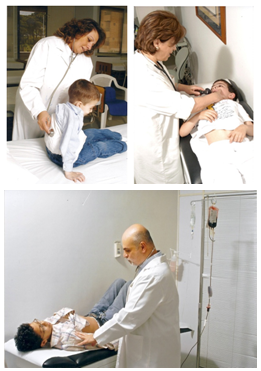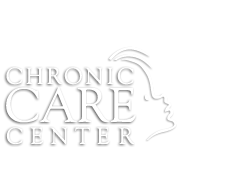This Department is essentially geared towards the treatment of thalassemic patients.
Majority of these patients are affected by Thalassemia Major 64% and Thalassemia Intermedia 34%.
Thalassemia Major is a serious inherited disease belonging to the hemoglobinopathies category. It is a form of severe anemia that usually starts at 3 months to 2 years. The treatment requires regular physical check-ups, immunization, hematologic and serologic screening, frequent blood transfusions (every 3 to 4 weeks) and an almost continuous special medicine to remove iron from blood.

The standard of iron chelation treatment adopted by the Center is:
- « Deferoxamine (Desferal) is the reference iron chelator drug used for the last 40 years and prescribed to the Center's thalassemic patients since 1993. This drug has proven efficacy in the prevention of the morbidity and mortality related to iron overload in thalassemics. Its subcutaneous administration through a pump 8 to 12 hours per day is a real difficulty for patients.
- Deferiprone (L1) is administered orally three times per day, and offers greater potential for intracellular iron chelation.
Used as a single agent, Deferiprone showed variable efficiency among patients that favored its association with Desferal. This combination Desferal - L1 permitted a synergistic effect between the traditional and the new drug for better iron chelation.
- Exjade (ICL670) Deferasirox has proven to be the most promising oral drug, showing efficacy in iron chelation, low toxic profile, good tolerance and better compliance compared to the previously used drugs. It is administered once daily in the morning. The new form Jadenu has been adapted by the Center in 2019.
Deferasirox has not been used in patients below 2 years of age.
The Hematologists of the Center decide on the chelation therapy according to the patient's medical condition following the most updated guidelines.
This treatment is a burden both on the patient and on family, this is why a multidisciplinary approach is required.





